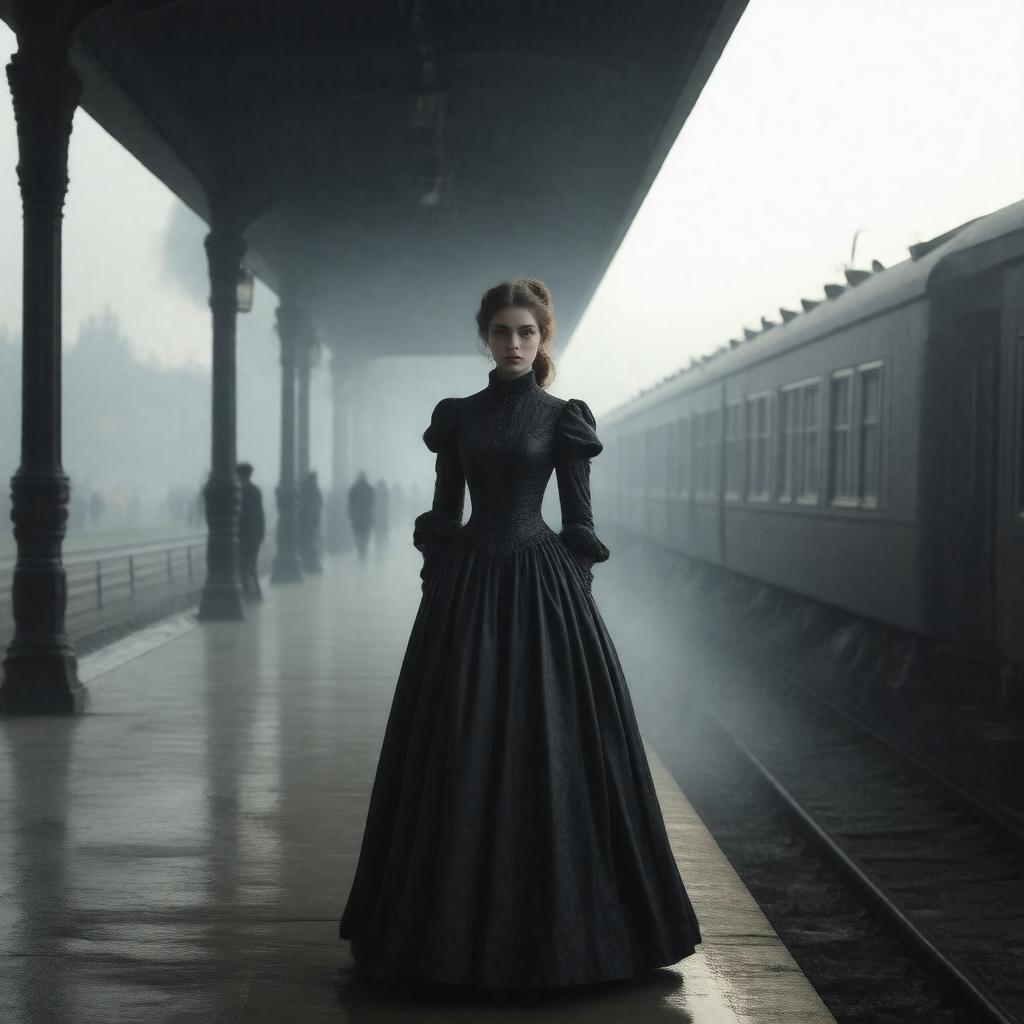Prompt
"Generate a realistic image of a 19th-century Russian noblewoman standing alone on a train platform, with a melancholic and introspective expression, dressed in a lavish yet somber outfit, set against the backdrop of a misty Imperial Russian landscape, symbolizing the tragic figure of Anna Karenina from Leo Tolstoy's novel."

